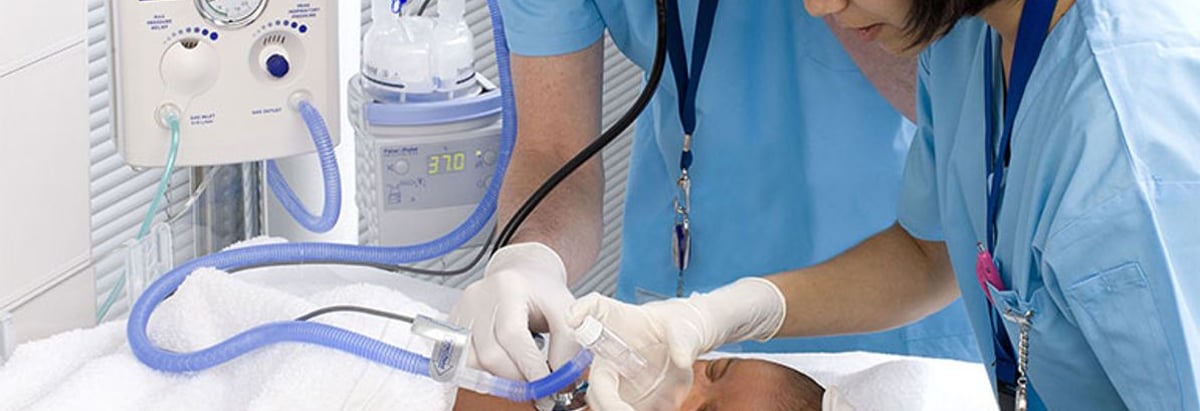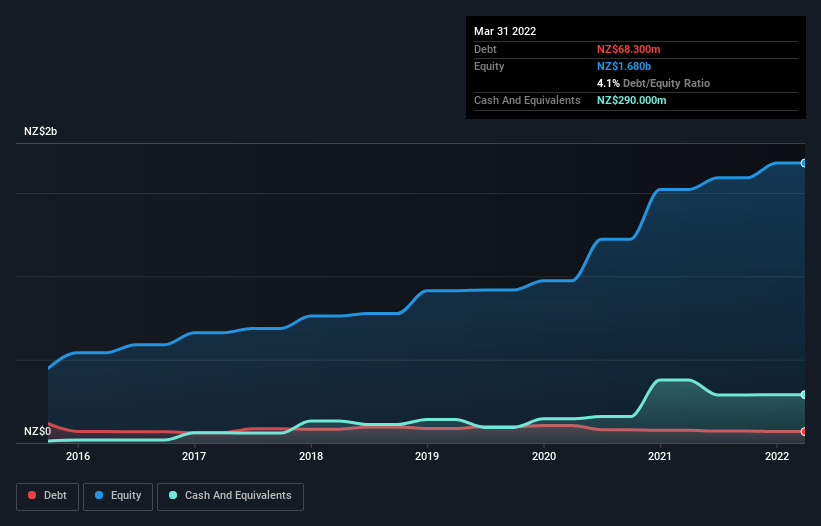- New Zealand
- /
- Medical Equipment
- /
- NZSE:FPH
Fisher & Paykel Healthcare (NZSE:FPH) Has A Pretty Healthy Balance Sheet

The external fund manager backed by Berkshire Hathaway's Charlie Munger, Li Lu, makes no bones about it when he says 'The biggest investment risk is not the volatility of prices, but whether you will suffer a permanent loss of capital.' When we think about how risky a company is, we always like to look at its use of debt, since debt overload can lead to ruin. We can see that Fisher & Paykel Healthcare Corporation Limited (NZSE:FPH) does use debt in its business. But the real question is whether this debt is making the company risky.
Why Does Debt Bring Risk?
Debt and other liabilities become risky for a business when it cannot easily fulfill those obligations, either with free cash flow or by raising capital at an attractive price. Part and parcel of capitalism is the process of 'creative destruction' where failed businesses are mercilessly liquidated by their bankers. While that is not too common, we often do see indebted companies permanently diluting shareholders because lenders force them to raise capital at a distressed price. Of course, plenty of companies use debt to fund growth, without any negative consequences. When we think about a company's use of debt, we first look at cash and debt together.
See our latest analysis for Fisher & Paykel Healthcare
What Is Fisher & Paykel Healthcare's Debt?
The image below, which you can click on for greater detail, shows that Fisher & Paykel Healthcare had debt of NZ$68.3m at the end of March 2022, a reduction from NZ$76.1m over a year. But it also has NZ$290.0m in cash to offset that, meaning it has NZ$221.7m net cash.

How Healthy Is Fisher & Paykel Healthcare's Balance Sheet?
According to the last reported balance sheet, Fisher & Paykel Healthcare had liabilities of NZ$303.9m due within 12 months, and liabilities of NZ$123.4m due beyond 12 months. Offsetting these obligations, it had cash of NZ$290.0m as well as receivables valued at NZ$182.7m due within 12 months. So it can boast NZ$45.4m more liquid assets than total liabilities.
Having regard to Fisher & Paykel Healthcare's size, it seems that its liquid assets are well balanced with its total liabilities. So while it's hard to imagine that the NZ$10.9b company is struggling for cash, we still think it's worth monitoring its balance sheet. Succinctly put, Fisher & Paykel Healthcare boasts net cash, so it's fair to say it does not have a heavy debt load!
The modesty of its debt load may become crucial for Fisher & Paykel Healthcare if management cannot prevent a repeat of the 29% cut to EBIT over the last year. When it comes to paying off debt, falling earnings are no more useful than sugary sodas are for your health. There's no doubt that we learn most about debt from the balance sheet. But it is future earnings, more than anything, that will determine Fisher & Paykel Healthcare's ability to maintain a healthy balance sheet going forward. So if you're focused on the future you can check out this free report showing analyst profit forecasts.
Finally, while the tax-man may adore accounting profits, lenders only accept cold hard cash. While Fisher & Paykel Healthcare has net cash on its balance sheet, it's still worth taking a look at its ability to convert earnings before interest and tax (EBIT) to free cash flow, to help us understand how quickly it is building (or eroding) that cash balance. In the last three years, Fisher & Paykel Healthcare's free cash flow amounted to 47% of its EBIT, less than we'd expect. That weak cash conversion makes it more difficult to handle indebtedness.
Summing Up
While it is always sensible to investigate a company's debt, in this case Fisher & Paykel Healthcare has NZ$221.7m in net cash and a decent-looking balance sheet. So we don't have any problem with Fisher & Paykel Healthcare's use of debt. We'd be motivated to research the stock further if we found out that Fisher & Paykel Healthcare insiders have bought shares recently. If you would too, then you're in luck, since today we're sharing our list of reported insider transactions for free.
If you're interested in investing in businesses that can grow profits without the burden of debt, then check out this free list of growing businesses that have net cash on the balance sheet.
New: AI Stock Screener & Alerts
Our new AI Stock Screener scans the market every day to uncover opportunities.
• Dividend Powerhouses (3%+ Yield)
• Undervalued Small Caps with Insider Buying
• High growth Tech and AI Companies
Or build your own from over 50 metrics.
Have feedback on this article? Concerned about the content? Get in touch with us directly. Alternatively, email editorial-team (at) simplywallst.com.
This article by Simply Wall St is general in nature. We provide commentary based on historical data and analyst forecasts only using an unbiased methodology and our articles are not intended to be financial advice. It does not constitute a recommendation to buy or sell any stock, and does not take account of your objectives, or your financial situation. We aim to bring you long-term focused analysis driven by fundamental data. Note that our analysis may not factor in the latest price-sensitive company announcements or qualitative material. Simply Wall St has no position in any stocks mentioned.
About NZSE:FPH
Fisher & Paykel Healthcare
Designs, manufactures, markets, and sells medical device products and systems in North America, Europe, the Asia Pacific, and internationally.
Flawless balance sheet with high growth potential.

